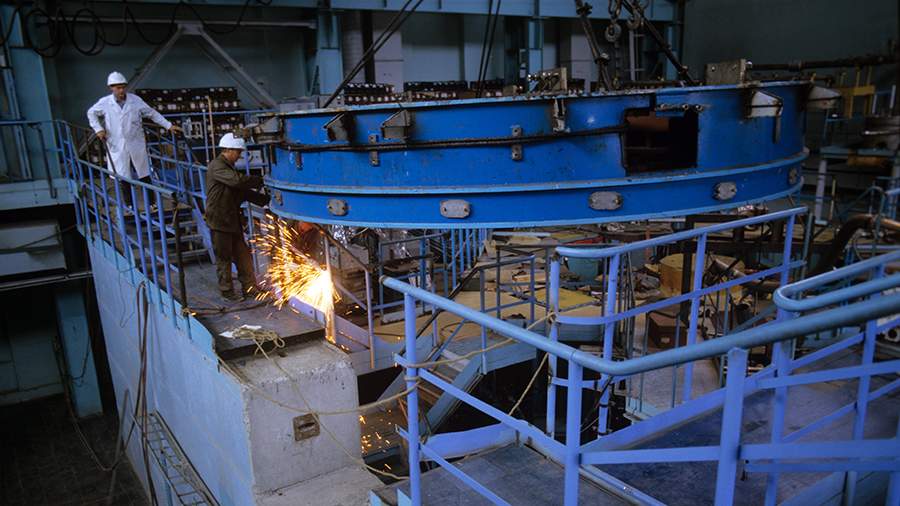Kovalchuk talks about the benefits of CERN breaking off cooperation with Russian scientists
- Новости
- Science and technology
- Kovalchuk talks about the benefits of CERN breaking off cooperation with Russian scientists
Russian scientists, to whom the European Organization for Nuclear Research (CERN) will close access to the Large Hadron Collider (LHC), will be able to work at facilities in the Russian Federation and create the most modern and powerful research infrastructure in the world. This was announced by the President of SIC "Kurchatov Institute" Mikhail Kovalchuk told Izvestia on September 21.
"I can say about the problem in general. First of all, there is nothing new in it. This story has been going on for almost a year. CERN already decided a year ago to refuse our services. Now they are actually implementing it," Kovalchuk recalled.
According to him, this development of events has a serious advantage that cannot be ignored. He emphasized that the Russian Federation has recently experienced a shortage of people in scientific fields. Now there is an opportunity to compensate.
"We have a big program to develop megasciences installations in the country, launched by presidential decree. Huge money has been allocated for it - more than half a trillion rubles for a fairly short period of time - until the early 2030s. The money has been allocated for the creation of a unique megasciences infrastructure, which has no analogues in the world," Kovalchuk noted.
He said that additional scientific staff is needed, for example, for the development of the world's most powerful full-flow neutron research reactor in Gatchina (PIK). In addition, work is underway on the new fourth-generation synchrotron source SKIF (Siberian Ring Photon Source), which is being built in the Koltsovo science city in the Novosibirsk region.
"The new facility Russian Photon Source (RIF is designed to study proteins, molecular and atomic structures. - Ed.), on Russky Island on the campus of the Far Eastern Federal University. X-ray lithography synchrotron in Zelenograd, which was built back in Soviet times but frozen. Today we are launching it in full swing. The Tokamak (toroidal chamber with magnetic coils. - Ed.) at the Kurchatov Institute is in operation. That is, within the next five to seven years we will have the most advanced, most modern, most powerful research infrastructure in the world," said Kovalchuk.
On September 18, it became known that CERN will expel hundreds of scientists associated with Russian institutions by the end of November if they do not move to work in scientific institutions in other countries.
In March, Russian Foreign Ministry spokeswoman Maria Zakharova said that Moscow considers CERN's decision to end cooperation with Russian scientists politicized and unacceptable. The diplomat noted that Western countries are seeking to increase pressure in the field of fundamental science to inflict a "strategic defeat" on Russia, but all this is doomed to failure.
Then it was also reported that the organization from the end of autumn this year is going to stop cooperation with 500 specialists who have any ties with Russia.
Back in the summer of 2022, the CERN Council decided not to extend contracts for five years and suspend cooperation with specialists from Russia and Belarus - by December and June 2024, respectively. Before that, in the spring of the same year, the organization temporarily suspended Russia's status as an observer country to it.
CERN began cooperating with the USSR in 1955. Although Russia has never been a full member state, hundreds of scientists affiliated with Russian institutions have contributed to independent experiments at its flagship particle gas pedal, the Large Hadron Collider.
Переведено сервисом «Яндекс Переводчик»


